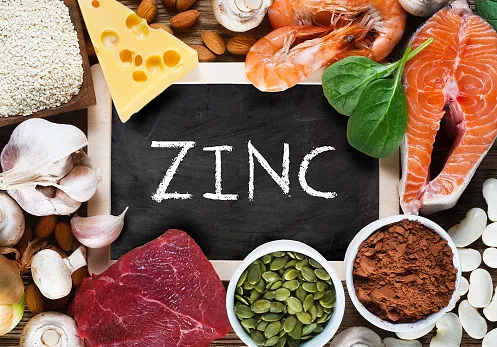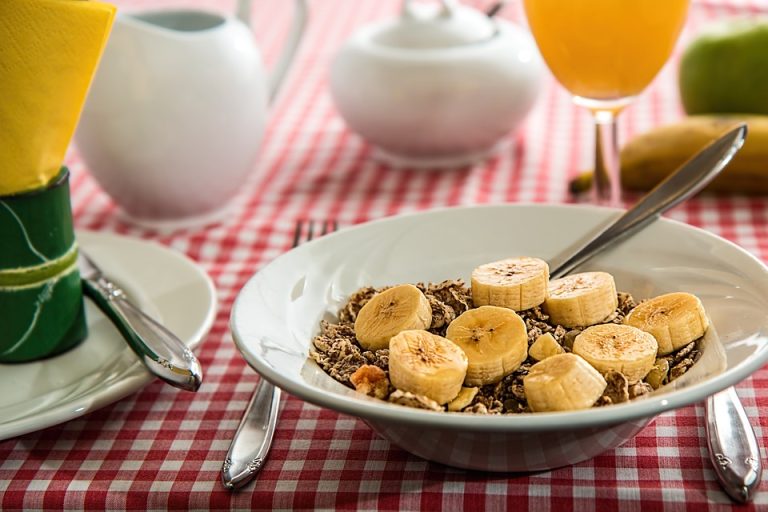10 Amazing Heart-Healthy Foods
Heart disease is a major health concern worldwide, and making lifestyle changes, such as eating a healthy diet, can help reduce the risk of developing this condition.
From oats and nuts, which are rich in fiber and healthy fats, to leafy greens and salmon, which are high in antioxidants and omega-3 fatty acids, these foods can help lower cholesterol levels, reduce inflammation, and protect against heart disease.
We will also look at whole grains, avocado, olive oil, garlic, and tomatoes, which are all nutritious options that can help improve heart health.
In this article, we will explore 10 amazing heart-healthy foods and how they can benefit heart health. By incorporating these heart-healthy foods into your diet, you can take an important step towards maintaining a healthy heart and reducing your risk of heart disease.
10 Amazing Heart-Healthy Foods
Here is a list of the amazing heart-healthy food:

Oats
Oats are a type of whole grain that is rich in soluble fiber, which can help lower cholesterol levels and reduce the risk of heart disease.
Soluble fiber absorbs water and forms a gel-like substance in the intestine, which helps to remove cholesterol from the body. Oats are also a good source of antioxidants and can help regulate blood sugar levels, which is important for maintaining heart health.
Nuts
Nuts, such as almonds and walnuts, are a good source of healthy fats and protein. They are also high in antioxidants, which can help reduce inflammation and protect against heart disease.
Nuts are particularly rich in monounsaturated and polyunsaturated fats, which can help lower cholesterol levels and reduce the risk of heart disease.
Leafy greens
Leafy greens, such as spinach and kale, are high in antioxidants and nutrients that can help protect against heart disease.
They are also a good source of fiber, which can help lower cholesterol levels and improve digestion. Leafy greens are also low in calories and can help you maintain a healthy weight, which is important for maintaining heart health.
Salmon
Salmon is a type of fatty fish that is rich in omega-3 fatty acids, which can help reduce inflammation and lower the risk of heart disease.
Omega-3 fatty acids can help lower blood pressure and reduce the risk of blood clots, which can lead to heart attacks and strokes. Salmon is also a good source of protein and other nutrients that are important for maintaining heart health.
Berries
Berries, such as strawberries and blueberries, are high in antioxidants and can help reduce inflammation and lower the risk of heart disease.
They are also a good source of fiber and can help regulate blood sugar levels. Berries are low in calories and can be a healthy snack or added to salads and other dishes.
Whole grains
Whole grains, such as quinoa and brown rice, are a good source of fiber and nutrients that can help lower cholesterol levels and reduce the risk of heart disease.
Whole grains are also high in antioxidants and can help regulate blood sugar levels. They are a good source of energy and can help you maintain a healthy weight, which is important for maintaining heart health.
Avocado
Avocado is a good source of healthy fats and nutrients that can help reduce inflammation and lower the risk of heart disease.
Avocado is rich in monounsaturated fats, which can help lower cholesterol levels and reduce the risk of heart disease. It is also a good source of potassium, which can help regulate blood pressure, and vitamin E, which is important for maintaining heart health.
Olive oil
Olive oil is a good source of monounsaturated fats, which can help lower cholesterol levels and reduce the risk of heart disease.
It is also high in antioxidants and can help reduce inflammation. Olive oil can be used in place of other, less healthy fats in cooking and as a dressing for salads and other dishes.
Garlic
Garlic has been shown to have a number of heart-healthy benefits, including reducing blood pressure and cholesterol levels.
It is also a good source of antioxidants and can help reduce inflammation. Garlic can be added to a variety of dishes to add flavor and nutrition.
Tomatoes
Tomatoes are a nutritious and versatile food that can be a healthy addition to many dishes. They are high in lycopene, an antioxidant that can help reduce the risk of heart disease.
Lycopene is a pigment that gives tomatoes their red color and has been shown to have a number of health benefits, including reducing inflammation and lowering the risk of heart disease.

In addition to lycopene, tomatoes are also a good source of fiber and other nutrients that can help lower cholesterol levels and improve heart health. They are low in calories and can help you maintain a healthy weight, which is important for maintaining heart health.
Tomatoes are also rich in vitamin C and potassium, which can help regulate blood pressure, and vitamin A, which is important for maintaining healthy eyes and skin.
There are many ways to incorporate tomatoes into your diet. They can be eaten raw, added to salads and sandwiches, or cooked in a variety of dishes. They can also be made into sauce or juice and added to soups, stews, and other recipes.
Overall, tomatoes are one of the tasty and heart-healthy foods that can be easily included in a balanced diet.
Read Also: Hole in The Heart: Causes, Symptoms, and Treatment
Conclusion
There are many heart-healthy foods that can help promote heart health and reduce the risk of heart disease. These include oats, nuts, leafy greens, salmon, berries, whole grains, avocado, olive oil, garlic, and tomatoes.
By incorporating these amazing heart-healthy foods into your diet, you can take an important step towards maintaining a healthy heart and reducing your risk of heart disease.
It is important to remember that a healthy diet is just one aspect of maintaining heart health, and it is also important to engage in regular physical activity, manage stress, and avoid smoking and excessive alcohol consumption. By following a heart-healthy lifestyle, you can greatly improve your overall health and well-being.






